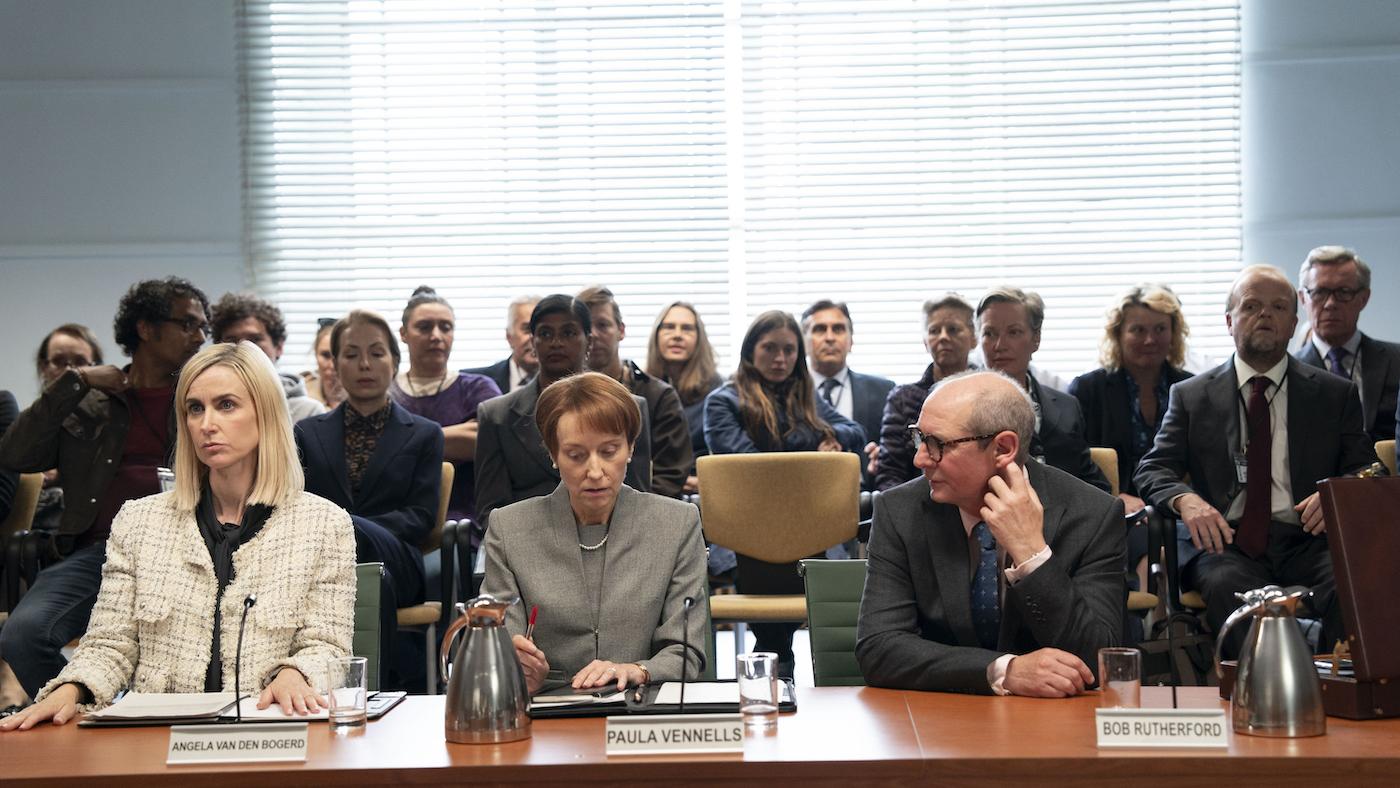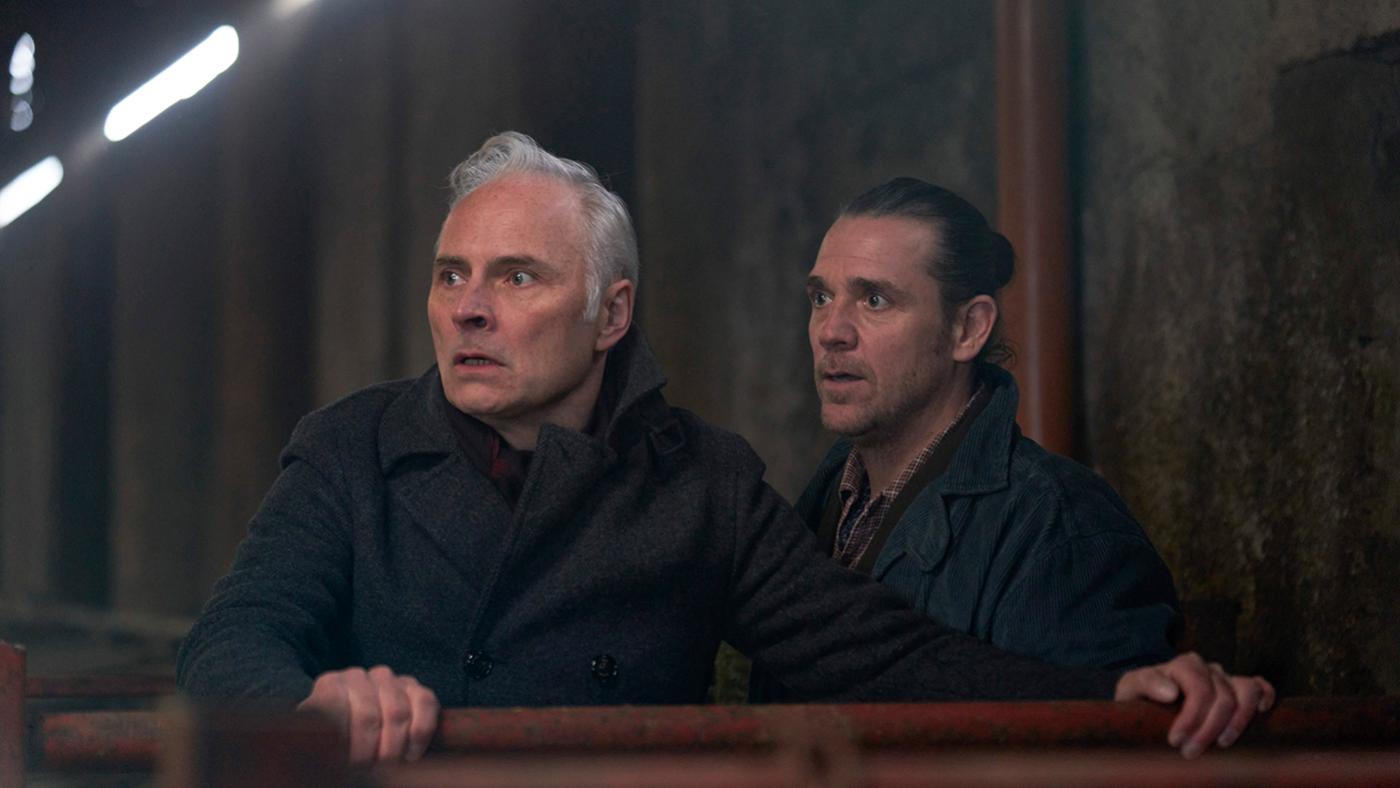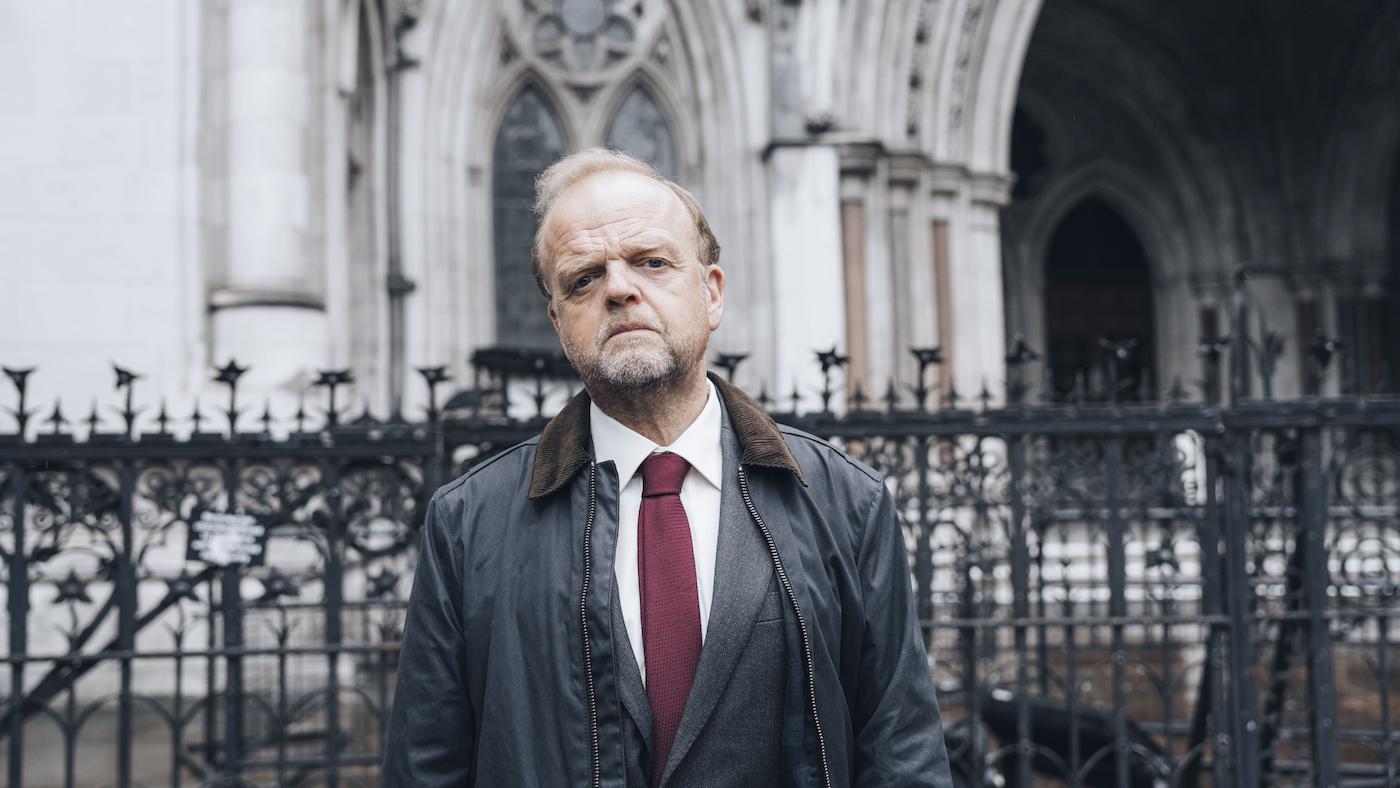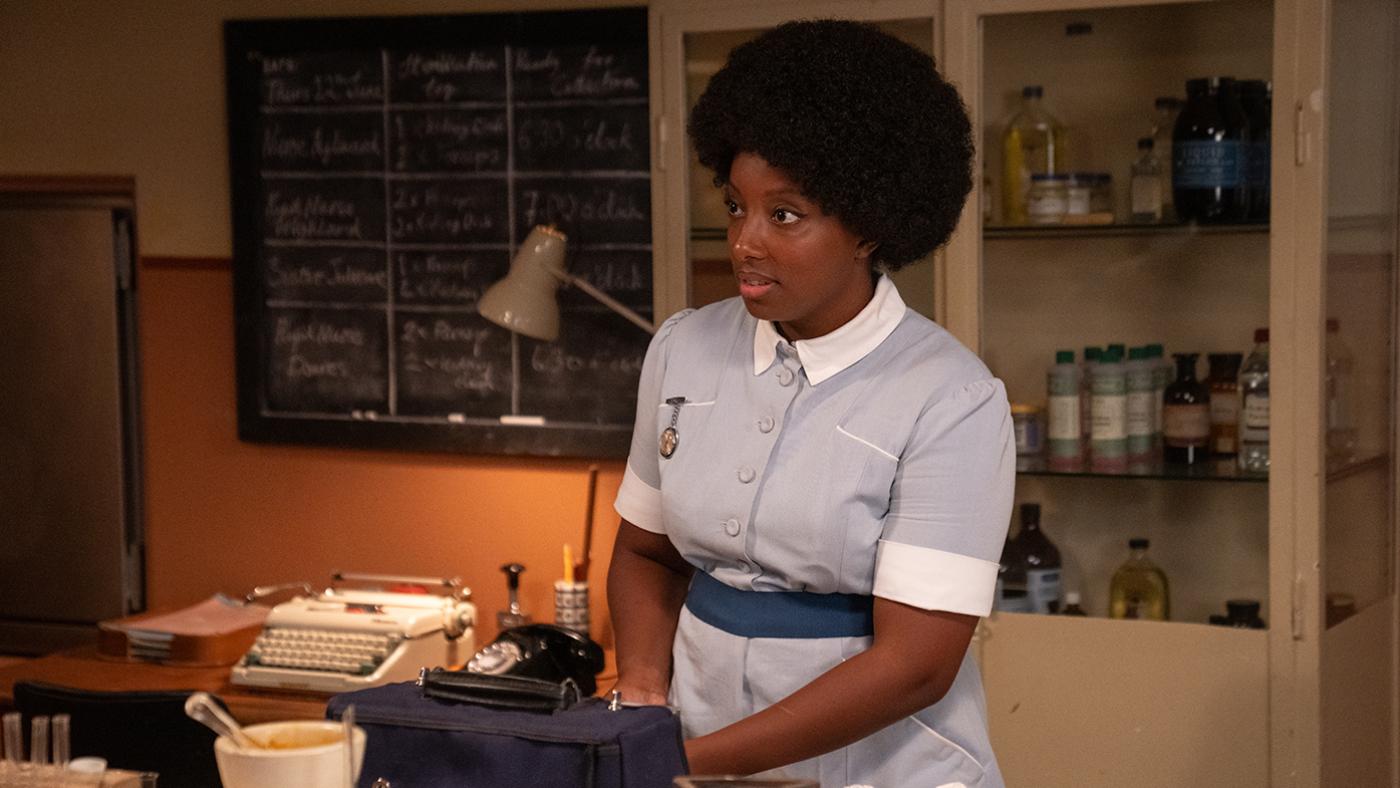'Mr Bates vs the Post Office' Recap: Episode 3
Daniel Hautzinger
April 21, 2024

Mr Bates vs the Post Office airs on WTTW Sundays at 8:00 pm and is available to stream. Recap the previous and following episode.s
Keep up with your favorite dramas and mysteries by signing up for our newsletter, Dramalogue.
This episode contains a depiction of suicide.
Some of the subpostmasters have taken to calling Jo “mum,” for her kindliness and caring nature. They joke that Alan should therefore be called the “godfather,” since he is the driving force behind their whole alliance. But even he can’t protect them from the damages caused by the Post Office.
Lee’s kids had to change schools due to bullying; his daughter developed anorexia. Pam Stubbs can’t sleep and expects the police to knock on her door any day. She took over her husband’s post office after he died, but new electrical lines were installed improperly and so she had frequent power cuts – which didn’t help with her issues the Horizon accounting system.
Martin Griffiths has already used up his and his wife Gina’s savings as well as their parents’ to pay “shortfalls” noted by Horizon, and is still under investigation. He initially suspected his staff of stealing, creating a tense environment in his post office. So the trauma of a robbery of his post office while he is there doesn’t help, especially after he is fined by the Post Office for allowing it to happen because he left the shatterproof window to his office slightly open while a postman picked up mail. That’s despite the police recovering most of the stolen money. He’s eventually fired due to the investigation.
Gina gets in touch with Alan but Martin refuses to talk to him – or even to his wife. Martin has fallen into depression, telling Gina for years now that he hated work because of the issues with Horizon. He resists bathing or changing clothes, and loses an appeal of his case.
Alan urges Gina to get Martin to apply for mediation with the Post Office. After the Post Office CEO Paula Vennells called Alan directly, he and she negotiated a process where new investigations into each case will be opened and compensation for injustice could result. Alan and the forensic accountant Kay will look into each case with the help of the independent investigator Bob Rutherford. Some of the subpostmasters don’t think the Post Office can be trusted in this but agree that it’s worth a try, as Alan says.
They can’t afford to go to court, Alan points out when Bob raises doubts and says he’d be a fool to trust the Post Office. Bob agrees to stay on, even though his access to files at the Post Office is being restricted as a result of the new arrangement.
Gina doesn’t have time to get Martin to apply for the mediation process. He leaves the house early one morning and then steps in front of a bus. He never regains consciousness.
The Post Office’s Angela van den Bogerd visits Gina at home and promises to do right by her after her husband’s death.
When mediation begins, Martin’s – now Gina’s – case is prioritized, and the Post Office agrees to contact Gina only through Alan.
While at first Alan had hope for the mediation, the process turns out to be infuriating, as Pam finds out. She meticulously kept records, and thinks she has proof that Horizon could be accessed remotely: there was a two-hour window when money kept being entered even while she was helping customers. The Post Office doesn’t accept her contention, and is condescending towards her as well. She walks out on them, saying she will tell anyone who will listen that they are lying, even though she signed an NDA. Alan thinks the Post Office actually believes that they are in the right.
Alan writes a letter of complaint, but his parliamentary ally James Arbuthnot wants him to speak directly to Paula rather than air his issues. When everyone does meet, the Post Office insists it is not dragging its feet on mediation even though no cases have been finalized yet. They also now contend that the process can’t overturn any convictions, breaking their initial word.
James goes to the media to announce that he no longer trusts the Post Office and that it has spent public money on a mediation process that it is now sabotaging. He also drags Paula and Angela before a parliamentary committee at which Bob also testifies. Bob points out a lack of access to records, including a tactic whereby the Post Office sent him emails for the wrong year. Paula and Angela obfuscate, avoid answering questions, deny knowledge, and won’t give a simple yes or no answer to anything.
The victory of that committee appearance soon pales when Alan and his allies learn that Gina has pulled out of the mediation process. The Post Office went behind their backs to offer her money, and only a single day to accept the deal. She needed the money – she would have had to sell her house otherwise – and so accepted, which also entailed signing an NDA. Alan doesn’t blame her.
The Post Office then “simplifies” the mediation process, essentially ending it by moving it entirely internal after eighteen months. Alan and Bob lose access to files, must destroy or return any in their possessions, and are to cease communication between the two of them.
Alan thinks it might be time to give up, especially because his wife Suzanne learns she has cancer and has to get a hysterectomy. But she tells him he can’t give up; she wants to see people go to prison for this. He immediately pitches a new plan: he and all the other subpostmasters can apply to see everything the Post Office has on them.
When they receive their documents, almost everything is redacted. And the report Bob found saying there was no evidence Jo had committed theft isn’t part of her packet.
Jo and James go on the radio to press their case. James Hartley, a contract lawyer, hears their interview and contacts Alan – he thinks he can help. If the contract everyone signed requiring them to pay for any shortfalls was not properly understood – and many of them didn’t even see all 114 pages of it – then it’s not necessarily legally binding. James could raise money to bring the case to court, if Alan can get some 500 subpostmasters to sign on. He’s currently at around 150 – that low-ish number is part of the Post Office’s defense of Horizon, since there are so many other users who supposedly haven’t had issues. Alan is confident he can find more people.
Indeed, he receives new information unsolicited. An unlisted number calls him; the caller says he worked at Fujitsu, the manufacturer of Horizon. Alan is in the mountains and has to pull over to get cell service, but then begins to listen to the caller’s charges, which he will only make anonymously. The Post Office is lying. There was remote access to Horizon; a whole room was devoted to doing corrections in systems overnight while subpostmasters slept. And the software itself was horribly buggy. It should have been scrapped.






